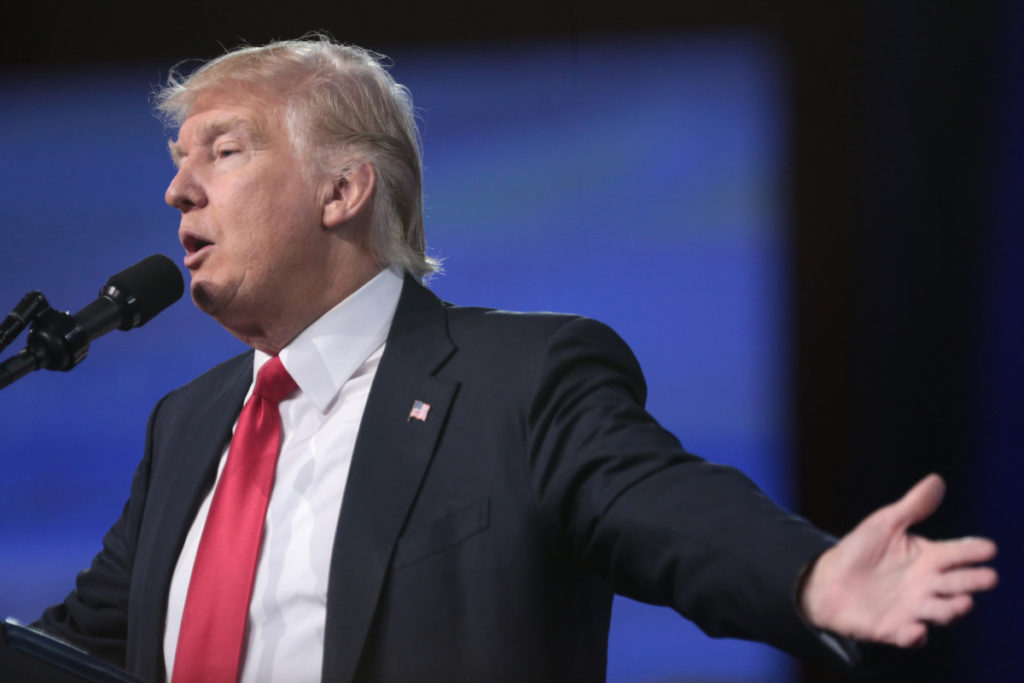Donald Trump’s fatal flaw

The DSM-5 (Diagnostic and Statistical Manual, fifth edition) is the canonical diagnostic tool, published by the American Psychiatric Association (APA), and is used by mental health professionals for diagnosing pathologies in the mentally ill. It broadly categorizes disorders into types, including, for example, “bipolar and related disorders,” “depressive disorders,” and “anxiety disorders,” which are in turn broken down into subcategories of specific disorders. These specific disorders are diagnosed using approximately eight to ten or so “diagnostic criteria.” When the patient is observed behaving according to certain diagnostic criteria, the healthcare professional can reasonably determine whether or not the specific diagnosis applies to them, depending on whether or not a minimum number of criteria apply to them.
For instance, the category we are concerned with is part of the broader category of disruptive, impulse-control, and conduct disorders. The specific pathology is “Narcissistic Personality Disorder,” or NPD. Numerous psychiatrists and other healthcare professionals have diagnosed Donald Trump with NPD. The nine diagnostic criteria for NPD are:
A grandiose sense of self-importance.
A preoccupation with fantasies of unlimited success, power, brilliance, beauty, or ideal love.
A belief that he or she is special and unique and can only be understood by, or should associate with, other special or high-status people or institutions.
A need for excessive admiration.
A sense of entitlement.
Interpersonally exploitive behavior.
A lack of empathy.
Envy of others or a belief that others are envious of him or her.
A demonstration of arrogant and haughty behaviors or attitudes.
Only five of the above nine diagnostic criteria are necessary for a diagnosis of NPD. The overwhelming consensus among mental healthcare professionals is that Donald Trump qualifies for all nine of these diagnostic criteria.
While you can see for yourself that there is no specific diagnostic criterion for NPD that mentions “an inability to admit when one is wrong,” that characteristic may be inferred by combinations of the ones that are mentioned above. For example, it is reasonable to see that “a grandiose sense of self-importance,” “a need for excessive admiration” and “a demonstration of arrogant and haughty behaviors or attitudes,” are each component parts of a personality reluctant to admit when it has made a mistake.
We already know that Donald Trump is so disinclined to admit when he is wrong that it is difficult to find any instance where he actually has. His usual inclination is to double down on a mistake, or blame the Democrats or Hillary Clinton or Barack Obama or the Fed, or anything or anyone but himself. This propensity has led to the longest partial government shutdown in history and, more recently, an inability to admit that he mistakenly identified Alabama as being in the path of hurricane Dorian, and his disastrous and self-destructive trade war with China.
Donald Trump’s inability to admit when he’s wrong could have even more disastrous consequences for America and the rest of the world at some future time. One can imagine horrific scenarios where Trump, say, orders planes to bomb the wrong country and, when informed of his mistake, refuses to acknowledge it as a mistake and instead doubles down with more bombs. Or he could get a delusion into his head at some point that China is about to, or already has, launched nuclear weapons, and he must launch his, and once he goes down that path, no amount of radar or satellite evidence will convince him to admit he’s wrong.
It’s difficult to say whether Trump is capable of triggering such scenarios, but therein lies the problem: it’s difficult to say. Of the 44 men who have occupied the presidency to date, Donald Trump is the only one who seems to believe admitting he’s wrong, that is, admitting he is a human being, is actually a weakness. It is not a weakness, it’s a strength. But again, who’s going to convince Trump of that?

Robert Harrington is an American expat living in Britain. He is a portrait painter.
